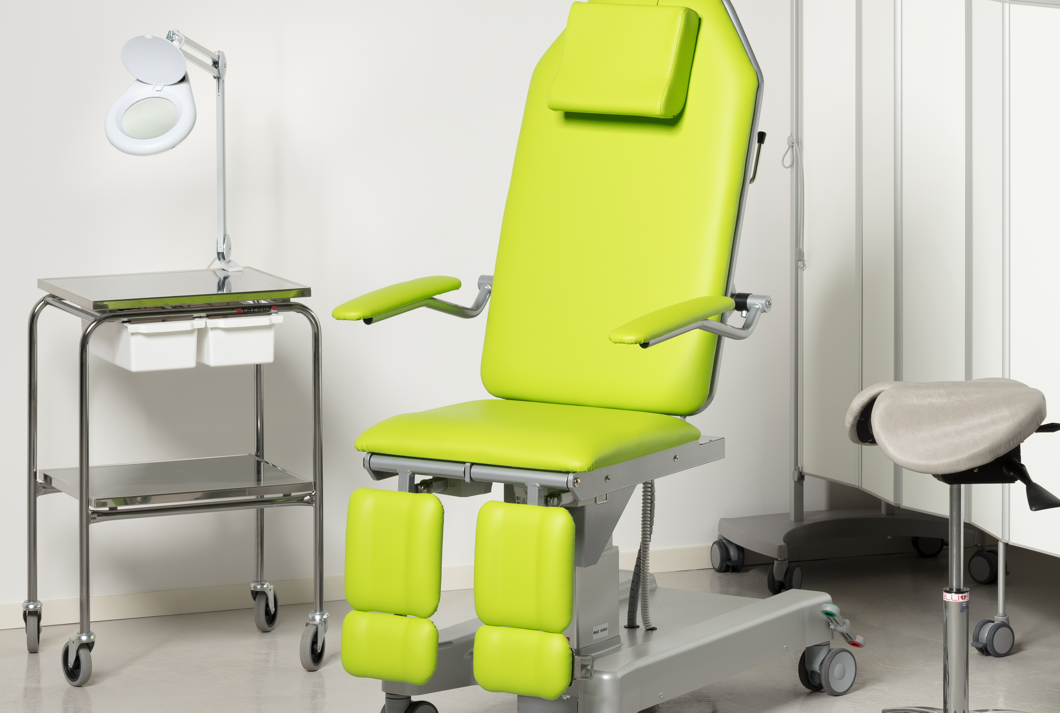
Title: Improving Patient Comfort: The Importance of Medical Chairs in Clinical Settings
Introduction: Medical chairs play a critical role in providing comfort, support and safety to patients during various medical procedures in clinics and dispensaries. From patient chairs in waiting areas to treatment chairs for examinations and blood collection chairs for phlebotomy, each type of medical chair serves a specific purpose - improving the patient experience and making care easier. In this review, we will look at the different types of medical chairs used in clinical settings, including patient chairs, treatment chairs, and blood collection chairs, and discuss their importance in providing comfort and support during medical procedures.
-
Patient Chairs: Patient chairs are designed for use in waiting areas, examination rooms and consultation areas to provide a comfortable space for patients and visitors. These chairs are typically upholstered in durable, easy-to-clean materials, with padded seats and backs that provide optimal comfort for long periods of sitting. Patient chairs may also have armrests, lumbar support, and ergonomic designs to promote good posture and ease discomfort for patients with musculoskeletal problems. By offering comfortable seating options, patient chairs create a welcoming and relaxing environment for patients and enhance the overall clinic experience.
-
Treatment Chairs: Treatment chairs are specialized chairs used for medical examinations, minor procedures and therapeutic treatments in a clinical setting. These chairs are designed to provide support and stability to patients during procedures while allowing healthcare providers easy access to the patient's body. Treatment chairs often have adjustable height, backrest and footrest to accommodate a variety of examination and treatment techniques. Some treatment chairs may also include additional features such as recline capability, built-in armrests, and removable headrests for versatility and patient comfort. With ergonomic support and flexibility, treatment chairs allow healthcare professionals to perform procedures safely and effectively while ensuring patient comfort and satisfaction.
-
Blood Collection Chairs: Blood collection chairs, also known as phlebotomy chairs, are specialized chairs used for blood collection procedures in clinical laboratories and outpatient settings. These chairs are designed to facilitate patient positioning and venous access while minimizing discomfort and anxiety during blood collection. Blood collection chairs typically have adjustable heights, armrests, and footrests to optimize patient positioning and increase venous volume. Some blood collection chairs may also have padded armrests, recline capabilities, and easy-to-clean surfaces for infection control and patient comfort. Blood collection chairs provide stable and comfortable seating and help ensure successful blood collection procedures while increasing patient satisfaction and compliance.
Conclusion: Medical chairs are indispensable pieces of furniture in clinics and dispensaries, providing comfort, support and safety to patients during various medical procedures. Patient chairs create a welcoming environment in waiting areas and consultation rooms, procedure chairs facilitate examinations and therapeutic procedures, and blood collection chairs provide efficient and comfortable blood collection procedures. By selecting the appropriate medical chairs based on patient needs and clinical requirements, healthcare providers can improve the patient experience, increase patient comfort and satisfaction, and optimize the delivery of healthcare services in the clinical setting.






